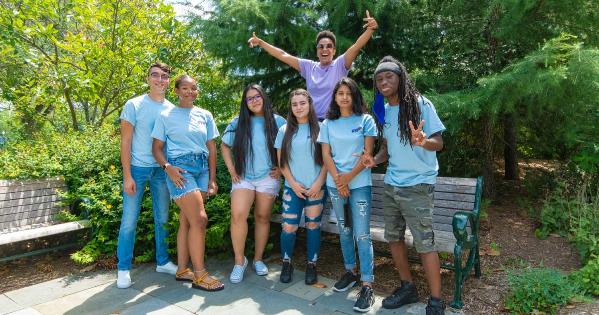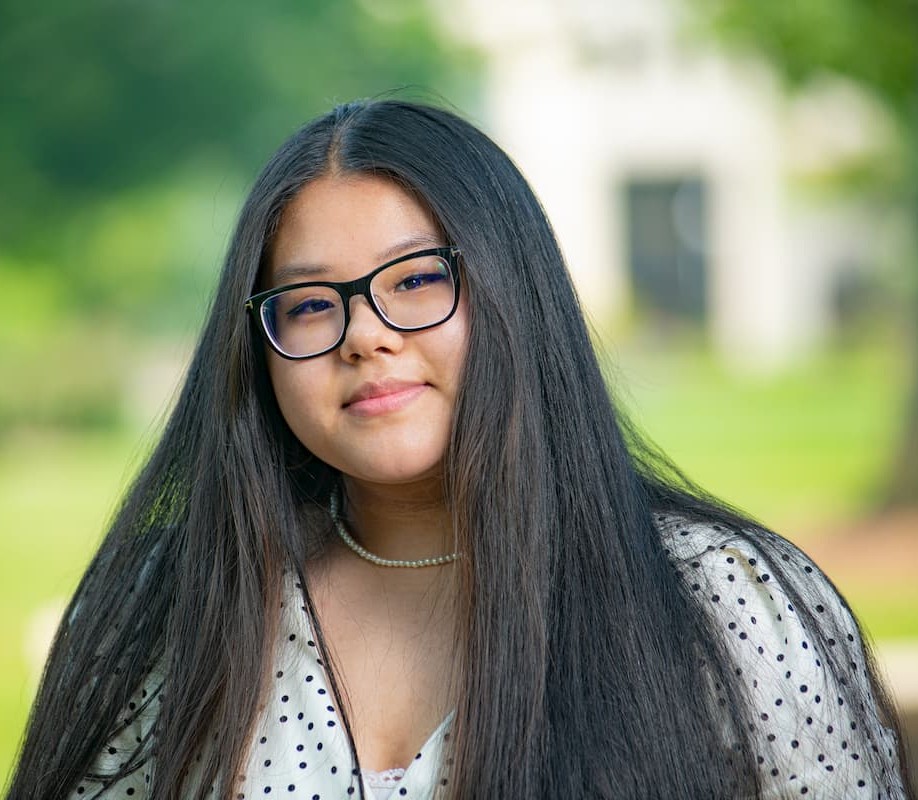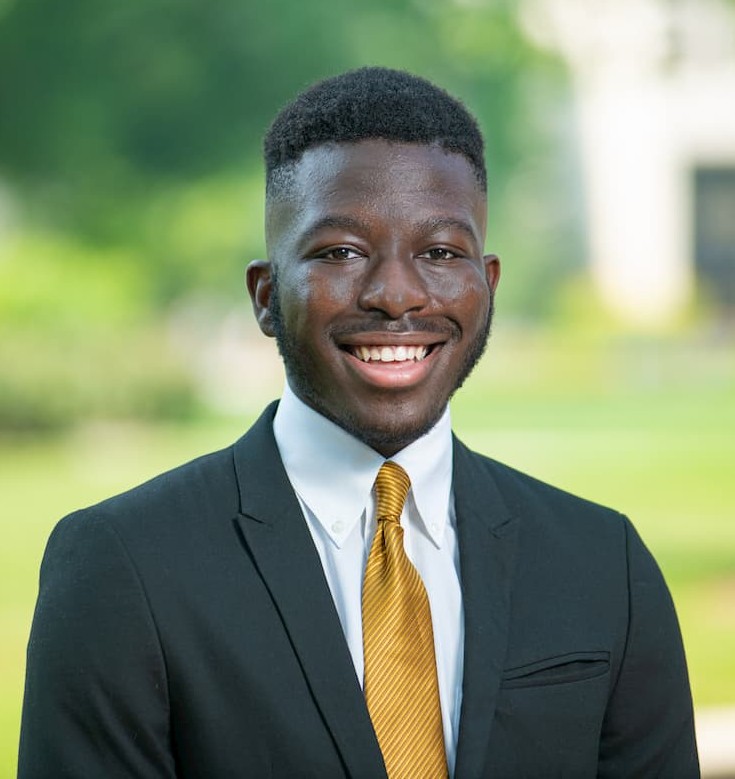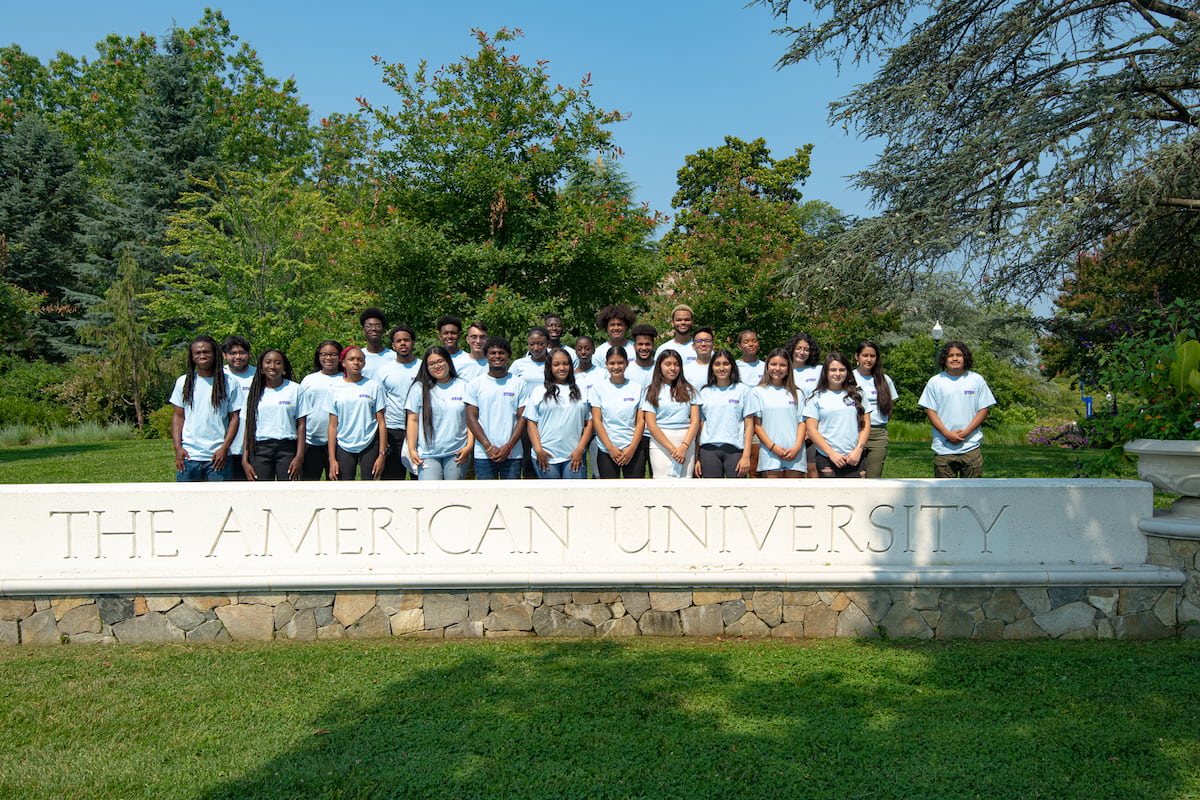STEP-ping into Life at AU

When she opened her acceptance letter from American University, it was a dream come true for Tsetan Namdol. But it also filled her with questions.
“One of my biggest questions, and biggest fears, was what it would be like to come into a PWI [Predominantly White Institution]. I’d never been in one,” says Namdol, who is from a Tibetan refugee family and grew up in the New York City borough of Queens. “I worried about how I’d fit in, how I’d adjust.”
Another question was about a line in the letter – an invitation to something called STEP, the Summer Transition Enrichment Program, a seven-week program for select first-generation and multicultural first-year students to build community and help in the transition to college life. It sounded intriguing, but it also meant spending part of her summer at college, early.
In Georgia, Bamidele Idaomi had the same reaction. He, too, had been invited to STEP. What would it be like?
A few weeks later, he’s got the answer: “It’s been an experience I’d never change. It’s been amazing. Tremendous.”
And from Tsetan: “It's a family that I could have never imagined joining!”
Start strong, stay strong
 Tsetan Namdol
Tsetan Namdol
STEP is seven weeks of workshops, courses, journaling, field trips, and friendships. Of the 28 students in this year’s STEP program, 25 are first-generation students, the first in their families to attend college. First-generation students comprise just over 10 percent of AU’s student body and often face structural disadvantages in applying to and adjusting to college. So do students from multicultural backgrounds, whose experiences vary but often include opportunity gaps, experiences of racism and discrimination, and other obstacles.
STEP helps provide the tools to start strong and stay strong.
“We help fill the gap of equity of access and create a bridge for students who often had to take care of themselves in high school — especially during the pandemic,” says Robin Adams, Director of the Center for Diversity and Inclusion (CDI), which manages the program.
“Students might know about the university resources at hand, but they might not know how to implement them when needed,” adds Stephon Bradberry, AU’s STEP manager. ”We’re teaching them their value, how to [navigate] them. These are important skills students will carry all through their lives.”
There’s a lot of learning involved – from seminar-style academics to workshops, dialogues, and programming in DC. For instance, students complete two full courses, including a college writing seminar and either a math course or another course that counts towards graduation.
Learning goes far beyond traditional classes. Some of it involves ranging across Washington, DC, such as a visit to National Museum of African American History and Culture. Other workshops go in-depth into AU resources, from a workshop on Financial Aid, to discussions with the Career Center, to connecting with the Health Promotion and Advocacy Center and relaxing with restorative yoga — complete with their receiving their own yoga mats and self-reflection journals to keep throughout school.
Whether in seminar classes, workshops, in the residence hall where they live together during the program, or strolling the campus (and once being followed by six deer), the students inspire each other. “We have such good conversations and dialogue. It’s a community of intellectual people who are trying their best to succeed any way that they can, and you can clearly see that through their action and determination,” Namdol says.
“And we can relate to each other. Many of us are from immigrant families, everyone has a drive and passion, and I really appreciate hearing everyone’s stories and how they connect it to what we’re learning. Everyone is so inspiring to be around.”
“It’s such a rich educational experience,” says Fanta Aw, Vice President of Student Affairs and Inclusive Excellence. “ Most of the students are first in their family to attend college. The program provides knowledge, skills, and resources to high-achieving students so they really shine in academics and leadership. STEP has produced many proud generations of alumni who have gone on to be changemakers in their communities and society. It’s truly one of AU’s important traditions.”
Tools for success
 Bamidele Idaomi
Bamidele Idaomi
While the schedule is rigorous, time for self-care is essential. No group activities start before 10 am, to give students time to self-reflect, relax, and recharge. “We were very intentional about giving students time to be alone; moments of reflection are critical,” says Bradberry.
For Idaomi, that reflection has included thinking about the tools they’re learning in STEP. Three of them stand out for him.
“One tool,” he says, “is to remember the ‘why.’ Why you’re here, why DC, why you’re taking this class specifically. And from there, you get your sense of dedication and motivation and what you ultimately accomplish in the future.
“Another is time management. It’s college, yes, the workload and the material is a little harder – but ultimately that’s not the main distraction. There are so many activities, events, and opportunities in the college environment. So, the main thing is if you can balance those things.
“Lastly, it’s the people you keep around you. There’s a saying, ‘Show me your friends and I’ll show you your future.’ Or ‘I’ll show you who you are.’ Both, really. The people you surround yourself with don’t need to be on the same path, or have the same interests, but that’s who will create your environment. So, be conscious of that.”
Many of those people will be the community that has been formed at STEP. “They’re my backbone now,” says Tsetan, “If I ever need help, they’re here for me.”

STEP cohort of 2021